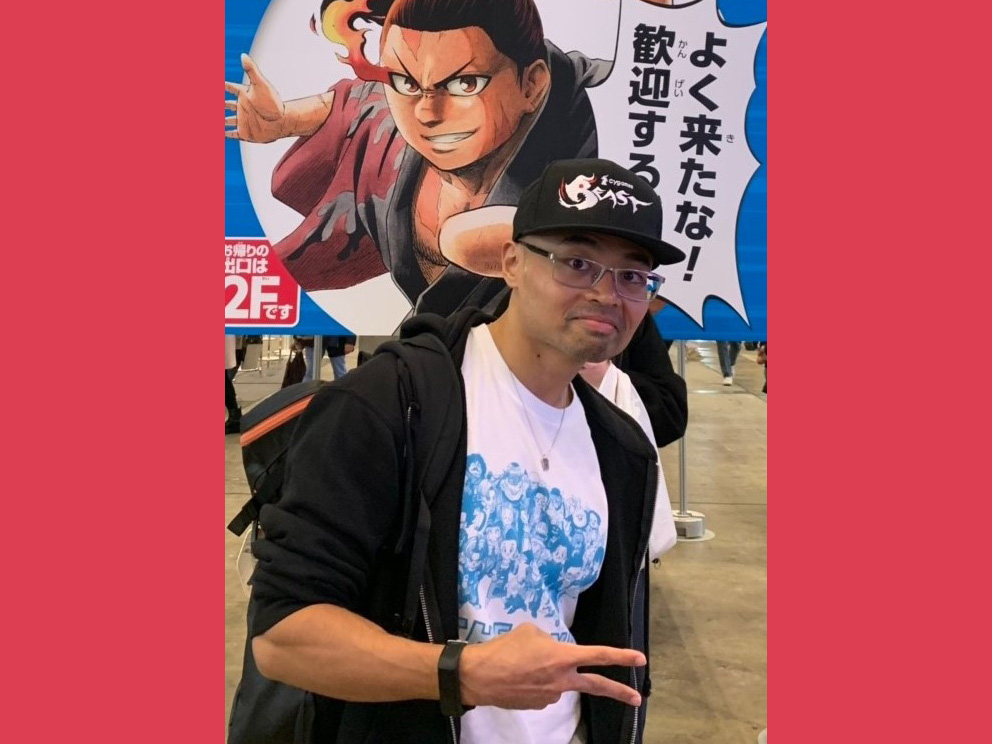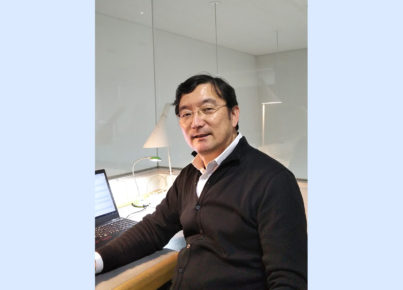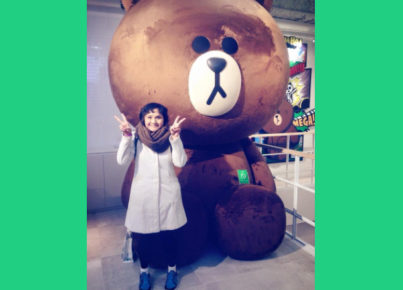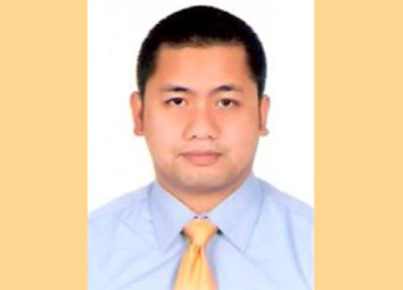“This too shall pass…”
Lim Cher Boon Marcus
Adviser
Singapore
Another year, another 365 days filled with changes. Looking beyond the COVID-19 pandemic, one can argue that 2020 has been the same as any other year where changes occur and people are required to adapt. This year, due to the pandemic, those changes have had more impact on individuals, and lives were and still are greatly affected. To some, the lockdowns, suspension of overseas travel for leisure and other related precautionary measures might seem like the end of the world as they know it. However, at the end of the day, 2020 will simply be another year lost to the passing of time. To the generations that come after us, the year of 2020 and its events will be a blurb in a history textbook, assuming it even makes it there. Even those who lived through the pandemic may eventually forget much of what happened. As the saying goes, “This too shall pass”, and pass indeed it will, but there are lessons that we should not, and must not forget.
COVID-19 has surfaced many issues that were hidden, buried deep within a facade of prosperity and bliss. The issue of migrant workers raised by some of the alumni is one such example. For many years, migrant workers have contributed to our nation’s success by building our houses and office buildings, but they have largely been forgotten by the general public. COVID-19 forced us to acknowledge that we have not been taking proper care of them, and gave us the impetus to move to rectify the issue. Much awareness and progress has been achieved in this area, and we must continue to work on this even after the pandemic blows over. The same goes for other minorities and the less privileged who have not been able to enjoy the same level of safety despite being in the same country.
COVID-19 has also made possible many things that used to be thought of as impossible because, as some may say, “more time and technological advances are needed first”. As shared by the alumni, almost everything has been shifted online, including lessons, internships and even work, and this has allowed many to settle most things from home. For years we have heard how work needs to be done in the office itself, and working/studying from home is something that current technology cannot yet support. However, the pandemic threw all our excuses out of the window. While issues still remain, working/studying from home has had many benefits. Such benefits include, but are not limited to, enabling people to spend more time with their family and giving people a greater capacity to take care of their mental health. As such, it would be rather unwise to throw the baby out with the bathwater and move straight back to how things were before the pandemic. Ironically, COVID-19 has forced progress in this area, and we should continue to explore the possibilities that are available to us.
It has been heartening to see the alumni share their stories of stepping up to the challenge, and utilising their time freed up from not having to commute to overcome the lack of social interaction brought about by measures aimed at tackling COVID-19. Change is the only constant, and adaptability the only solution. The adaptability shown by the alumni is a good sign, and hints at how it will be possible for them to showcase their creativity and adaptability on a larger scale by linking up with peers overseas using online tools to help bring about necessary change. This project itself is also proof that people from the younger generation are not the only ones capable of evolving to meet the challenges that face us. Even as we eventually go back to our “normal lives”, we should not forget how we have adapted and our capacity to adapt but instead use our experiences as a springboard to help us reach greater heights.
As a teacher in Singapore, COVID-19 has brought about many challenges. During “Circuit Breaker”, physical lessons were suspended and everything was moved online. Great effort was spent in modifying existing materials and creating new ones to better support students who had to do much of the learning by themselves at home. This went on throughout the year and even into the school holidays. It was also backbreaking work to track, record and report, several times a week, whether students were going through their online materials, and send out repeated reminders throughout the week. There were also many struggles faced when communicating with parents and students, and since such communication is essentially one teacher on his or her own frantically trying to reach out to hundreds of students and parents, sometimes things felt more difficult than they should have been. Lessons also had to be modified and carried out through online conferencing tools such as Zoom and Google Meet. Even when physical lessons resumed, lesson times were shorter and there was a need to make up for lost progress, so the adjustments and struggles continued. Lastly, as the situation was constantly evolving, instructions and directives kept on changing as well, so it was hectic to say the least, especially since a single teacher had to bear the brunt of frustration faced by hundreds of students and parents. Based on what my peers from other schools shared, it would not be an overstatement to say that every single teacher in the country was put through the wringer. Still, none of us threw in the towel but instead kept on giving our 120% to rise to the challenge for our students. While COVID-19 will be overcome eventually and forgotten in the annuals of history, the innovations and hard work put in during those trying times should not be forgotten. At the start of the pandemic, several countries were lauded for having model responses to tackling COVID-19. Fast forward to December 2020, and anyone with a logical and discerning mind can easily see for themself how many of those accolades still stand. Yes, COVID-19 too will pass, but complacency will bring it back. We cannot allow the important lessons learnt and the other things that we have gained to pass as well. COVID-19 has brought about many negatives, and it is important that we overcome the pain and move on, even forgive ourselves and others for some of the decisions made and things done. However, to wash away even the positives would be utterly foolish and unwise, or as we would say in Japanese, “愚の骨頂 (Gu no Kocchou)”.
今年も1年、新たに変化に満ちた365日。COVID-19のパンデミックの先を見据えると、2020年も他の年と変わらなかった、という人もいるかもしれません。なぜならば、変化は常に起こり、人々はそれに適応していかなければならないからです。今年は、パンデミックの影響で、その変化は個人により多くの影響を与え、生活に大きな影響を与えました。そして今もなお生活は大きな影響を受けています。ロックダウンやレジャーのための海外旅行の中止、その他の予防措置は、一部の人にとっては、あたかも世界の終りのように見えたことでしょう。しかし、結局のところ、2020年も通常の時の流れの中での過ぎ去った1年に過ぎないのではないでしょうか。私たちの後に続く世代にとって、2020年とその出来事は、歴史の教科書に書かれているような出来事に過ぎないでしょう。パンデミックを生き抜いた人でさえ、いつかは起こったことの多くを忘れてしまうかもしれません。「これもまた過ぎ去るでしょう」としばし言われるように、必ず今起こっている出来事は過ぎ去ります。しかし、私たちが忘るべきではない、いや、忘れてはならない教訓があるのです。
COVID-19は、繁栄と至福の奥底に埋もれていた多くの問題を表面化させました。TYCAの卒業生の何人かが提起した移民労働者の問題もその一例です。出稼ぎ労働者は長い間、家やオフィスビルを建てて私たちの国の成功に貢献してきました。しかし、一般の人々からはほとんど忘れ去られてきたのです。COVID-19は、私たちが出稼ぎ労組者に対して適切な扱いをしていなかったのを認めさせることになりました。そして、この問題を是正するために動き出すきっかけを与えてくれました。それに対する人々の意識は高まり、多くの改善もなされてきました。そして、私たちはパンデミックが終わった後もこの問題に取り組み続けなければなりません。同じ国にいるにもかかわらず、同じレベルの安全性を享受できていない他のマイノリティや恵まれない人々に対しても同じことが言えます。
COVID-19はまた、「より多くの時間と技術的な進歩がまずは必要だから」という理由で、かつては不可能だと考えられていた多くのことを可能にしました。TYCAの卒業生にも言われていますが、授業、インターンシップ、仕事など、ほとんどすべてがオンライン化され、自宅にいながらにしてほとんどのことができるようになりました。仕事はオフィスでするものであり、自宅で仕事をしたり勉強をしたりすることは、現在のテクノロジーではまだ対応できないことだと、何年も前から言われてきました。しかし、パンデミックの影響で、このような言い訳は通用しなくなりました。まだ問題は残っていますが、自宅で仕事をしたり、勉強したりすることには多くのメリットがあります。家族とより多くの時間を過ごすことができるようになったり、自分の精神的な健康に目を向けるための時間を割いたりするようになりました。しかし、メリットはそういったことに限定されません。このように、新しい生活様式になって得たメリットをパンデミックが終わったからと言って、以前の生活様式に戻してしまうのは賢明ではないでしょう。皮肉なことに、COVID-19は在宅学習や勤務の進歩を余儀なくさせました。だからこそ私たちは、出来ることを模索し続けるべきなのです。
TYCAの卒業生が多くのことにチャレンジしています。COVID-19の感染防止対策によってもたらされた社会的交流の欠如を克服するために、本来は通勤時間に充てられていた時間を利用している様子には、心強いものがあります。変化は常に起こるものであり、適応力は唯一の解決策なのです。卒業生が示した適応力は良い兆候であり、海外の仲間とオンラインツールを使って連携し、変化に対応しようとしています。それは、より大きなスケールで彼らの創造性と適応力を発揮できる可能性を示唆していると思います。このプロジェクト自体が、私たちが直面している課題に対して対応するために進化をしているのは若い人たちだけではない、ということを証明しています。いずれ「普通の生活」に戻っても、自分たちの適応力や能力を忘れずに、その経験をバネにして、より高いところに到達していくことが大切だと思います。
シンガポールの教師として、COVID-19は多くの困難をもたらしました。「サーキットブレーカー」の間、対面授業は中断され、すべてがオンラインに移行されました。自宅での学習を自力で行わなければならない生徒をサポートするために、既存の教材を修正したり、新しい教材を作成したりと、多大な努力が費やされました。これは年間を通して、学校が長期休暇に入っても続きました。また、週に数回、生徒がオンライン教材を使って学習しているかどうかを追跡し、記録し、報告し、週に何度もリマインダーを送るのは大変な作業でした。加えて、保護者や生徒とのコミュニケーションにも苦労することが多く、基本的には一人の教師が何百人もの生徒や保護者に必死に連絡を取ることになるので、本来あるべき姿よりも難しいと感じることもありました。ZoomやGoogle Meetなどのオンライン会議ツールを使って、授業をオンライン化し実施しなければなりませんでした。対面授業が再開されても、授業時間は短縮されたので、穴埋めのための調整と苦戦が続きました。そして、状況は常に変化していたので、こちらの指示や取り組みも変化し続けていました。何百人もの生徒や保護者の不満を一人の先生が背負うことになり、何とも慌ただしく感じました。他の学校の教師仲間の話からも、国中の教師全員が苦労したと言っても過言ではないでしょう。それでも、教師たちの誰もが諦めずに、生徒のために120%の力を出し続けました。COVID-19はいずれ克服され、歴史の中の一つの出来事として忘れ去られるでしょう。しかし、この苦難の時にもたらされた新しい考えと捧げられた努力は忘れられてはならないのです。
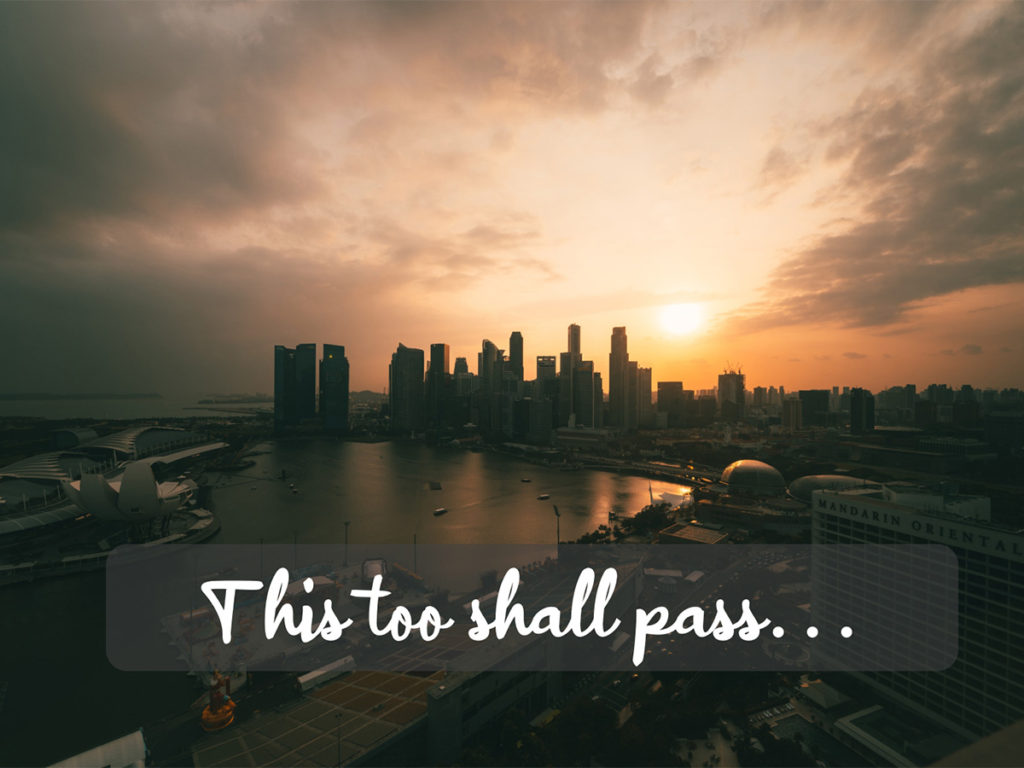
パンデミックが始まったとき、いくつかの国がCOVID-19への取り組みの模範的な対応をしたことで称賛されました。もしその時、2020年12月にタイムスリップできるならば、それがが間違いでなく、有効なものであるということを、理論的で分別のある人ならば誰でも簡単に理解することができます。そう、COVID-19もまた過ぎ去ってしまうでしょう。しかし、私たちが現状に満足してそれ以上の成長をやめてしまった時、再びパンデミックを呼び戻すことになるのです。私たちは、学んだ重要な教訓や、私たちが得た他のことを、過ぎ去ってしまうものにしてはならないのです。COVID-19は多くのマイナスの影響をもたらしました。だからこそ、痛みを乗り越えて前に進むことが重要です。私たちや他者が下した決断や、行動したことを容認しましょう。しかし、プラスの影響さえも洗い流すことは、まったく愚かで賢明ではありません。日本語でこれを「愚の骨頂」といいます。
